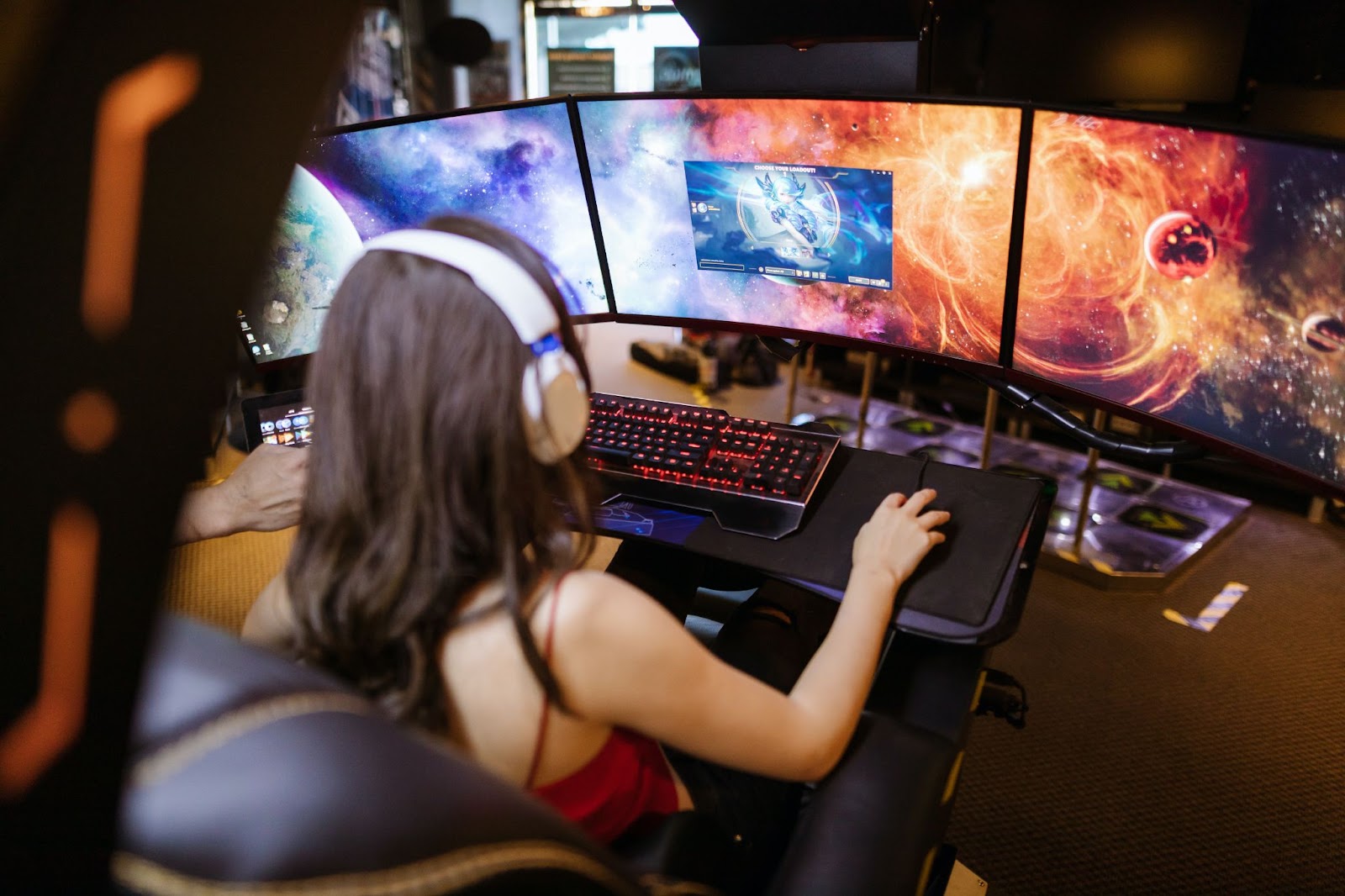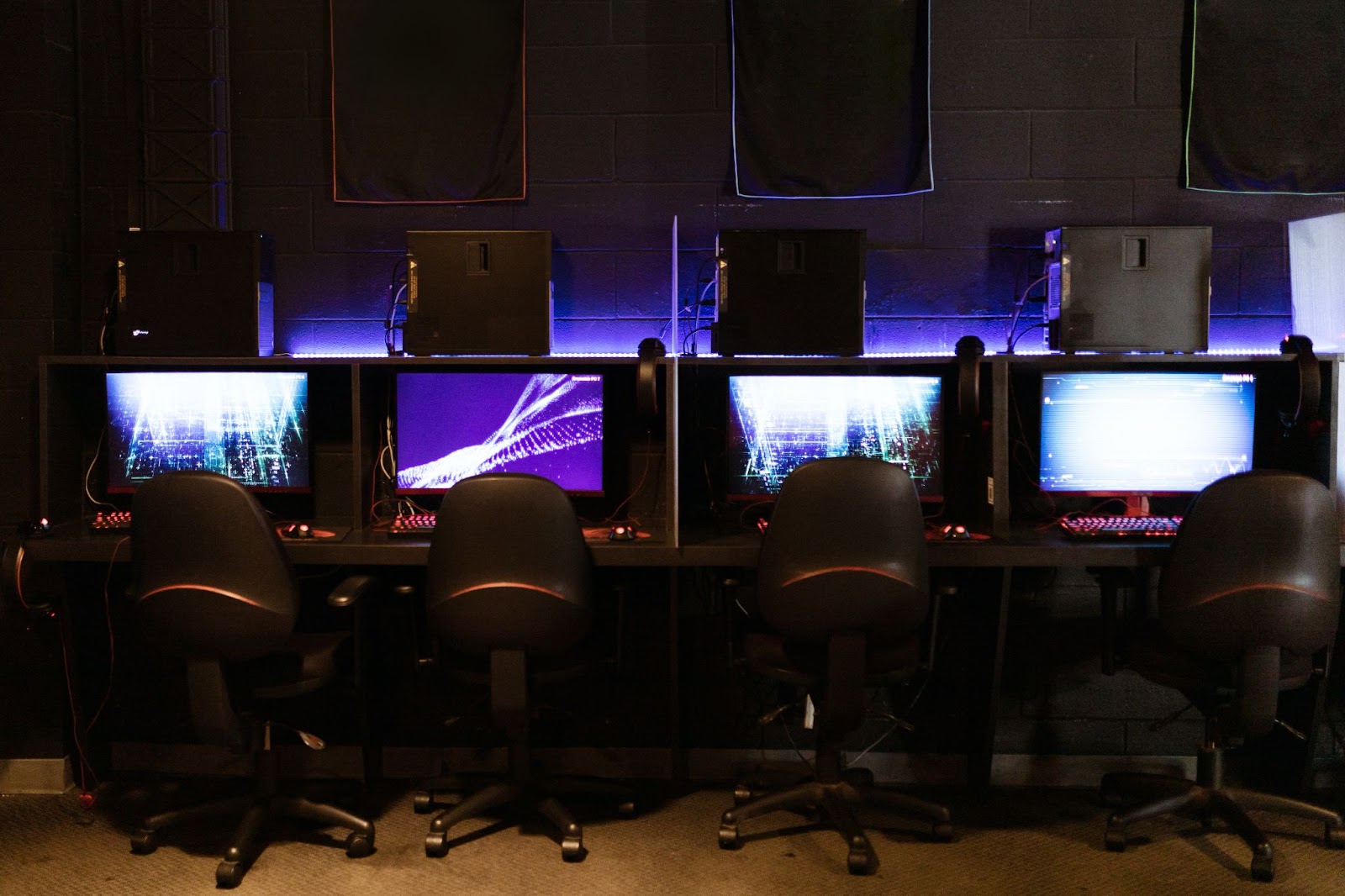
The International Olympic Committee (IOC) is considering the inclusion of esports in the Olympics. This follows a growing interest among countries and sports organizations to embrace this evolving industry, with many organisations taking steps in recent years to enable their national athletes to become professional esports players. The esports industry has seen a rapid rise in global popularity, with some tournaments having nearly as many spectators as traditional sporting events. At first glance, esports may seem to be too far removed from traditional sports for the IOC’s consideration. But closer examination reveals that there are several similarities between esports and traditional athletic activities, including physical and mental dexterity, teamwork and strategy. These similarities have allowed some to make a case for including these activities in the Olympics. Those calling for Congress to add this form of entertainment into the Olympics point out that it will create an opportunity for millions of people around the world who play video games competitively to compete on an international stage. It would also bring new life into an industry already worth billions of dollars according to some estimates. However, those opposed argue that video gaming does not fit within the framework of true athleticism and should thus not be included in such revered international events as the Olympics. As with any major change, there will be fierce debate about whether or not competitive gaming has a place on such an established global stage until a resolution is reached by all parties involved. For now though, it remains up for consideration from both sides of the aisle as its inclusion in future Olympic games continues to be discussed by IOC representatives throughout the world.
Is Esports in Olympics
Esports has a long and complicated history, with its roots dating back to the 1970s when arcade and console gaming first started to gain traction in the consumer space. In the decades since, esports has grown and changed drastically, leading to a growing number of enthusiasts who now view this form of gaming as a viable career path. With more and more countries embracing the concept of esports and making it an official sport, the debate about whether esports should be included in the Olympics has gained traction as well.
Rise of Esports in The 2010s
The rise of esports in the 2010s is often attributed to streaming services such as Twitch and ESPN, which allowed people to watch eSports tournaments and other gaming events from the comfort of their homes. In addition, the advent of mobile technology enabled gamers to take part in tournaments regardless of their location. As a result, tournaments have become larger and more frequent than ever before, with some events such as The International (a Dota 2 tournament) boasting prize pools that exceed $30 million. Organizers have responded to this increased demand by introducing leagues and tournaments around the world, allowing professional gamers to compete against each other on a regular basis. Meanwhile, publishers have been quick to capitalize on this trend by signing exclusive streaming deals with major platforms like YouTube Gaming and Microsoft Mixer. This has served as an additional revenue stream for publishers and a promotion tool for their products. Given its increasing popularity, there is increasing talk of making esports an Olympic-sanctioned event. This move has been driven by the World Esports Association (WESA), which was founded in 2016 by several major gaming companies including ESL, Fnatic and Valve Corporation. In 2017 WESA began working with the Global Association of International Sports Federations (GAISF) in order to pave the way for virtual sports competitions in upcoming Olympic Games. In July 2019, esports officially became a medal sport for next year’s Asian Games with six medal events including League of Legends , Pro Evolution Soccer , Clash Royale , Arena Of Valor , Starcraft II and Hearthstone . Whether this marks a step towards inclusion at more traditional sporting events remains unconfirmed but could be made possible within the next decade or so if it receives enough support from governments across the globe.
Popularity of Esports in The 2020s
In the 2020s, esports saw a meteoric rise in worldwide popularity. Esports tournaments like The International, League of Legends World Championships, and the Fortnite World Cup quickly gained large followings, both online and in person. These tournaments featured some of the best players in the world competing for grand prizes at physical locations around the world. As esports increased in both viewership and prize pools, so too did its popularity among sponsors and investors. The explosive growth of esports saw professional gaming teams forming their own organizations while traditional sports teams such as Real Madrid opened up dedicated gaming divisions centered around pro-gaming. Following this influx of investment and recognition, esports had a presence at major events like South By Southwest (SXSW) and major trade shows such as E3. This uncharted territory for video games provided necessary exposure for simulating motorsport, fighting games, shooters and real-time strategy titles from both independent developers as well as major game publishers like Activision Blizzard, Riot Games and Valve Corporation. Esports also took further steps towards becoming an Olympic event by having its athletes being recognized by the International Olympic Committee (IOC). Although they are still not officially part of any Olympics or Paralympics due to their level of physical activity being relatively low when compared to most other sports events there has been some consideration taken into making it official by 2024 Paris Olympics due to its ever increasing player base around the globe. Overall industry estimates put viewership growth into 2021 in excess of 72 million viewers globally with close to $1 billion USD raised from major tournament sponsorships from leading companies like Intel Corporation, Microsoft Xbox Game Studios, Wargaming Group Ltd., Epic Games Inc., Twitch Interactive Inc., Tencent Holdings Ltd., Sony Interactive Entertainment LLC among many other game publishers over recent years making it one of the most successful forms of entertainment available today.
Esports in The Olympics
With the growth of esports in recent years, many are pushing for the inclusion of esports in the Olympics. The potential of esports to bring in a new audience to the competitive sport scene of the Olympics is undeniable. Furthermore, new technological advances and the accessibility of esports tournaments has made it more feasible to include in the Olympics.
Let’s explore the potential of esports in the Olympics.
Benefits of Esports in The Olympics
Adding esports to the Olympics would bring much-needed attention to both the Olympic Games and esports industry. The League of Legends World Championship in 2017, for example, had more than 60 million people tuning in from around the globe. Such viewership is on a similar level to popular Olympic events such as swimming or athletics, and introducing it as an official sport into the Olympic games stands to increase mainstream awareness and understanding of esports even further. Moreover, it would be a great opportunity for athletes, not just gamers. As one of the fastest-growing industries, esports is offering new ways for brands to reach consumers all over the world; adding an official Olympics aspect could raise interest from potential investors in sponsorships, helping push growth further. Finally, esports have been identified as a driving force for digital innovation and technological development worldwide. According to experts at Ovum an aerie research company focusing on telecoms and technology trends – “The drive for new technologies within gaming platforms has brought us controller technology advances like motion detection controllers (Wii), wireless (PS3), touch screen/ pressure sensitive controllers (PS4) along with full body tracking camera technology devices” (Playstation 3 Eye). By introducing an official Olympics event that featured esports, many different technological advancements – graphics cards, software tools and entire platforms – could be showcased before millions worldwide who may otherwise remain unaware of their existence or how they work.
Challenges of Esports in The Olympics
The Olympics are an international sporting event that seeks to honour and promote excellence, sportsmanship, respect for the rules, and friendship among competitors. Esports bring some unique challenges to this well-established framework. As an emerging field of competition that is often difficult to judge objectively, esports may struggle to improve on current systems of ranking players and awarding medals. Professional esports competitors include athletes from all over the world who play games such as StarCraft II or League of Legends in concert with teammates they have never even met. Because these teams are not established through traditional means like country-based athletic federations, it can be difficult to track their progress and enforce regulations in the same way. Furthermore, the international nature of esports tournaments present a variety of legal issues that must be addressed if teams hope to compete in official Olympic events. At a more fundamental level, it can also be argued that many traditional Olympic sports are simply incompatible with how esports are played on a competitive level — Team sports like football (soccer) rely on physical contact between players while digital eSports competitions typically involve no or minimal physical movement or contact between opponents while they compete against each other remotely using video gaming systems and special controllers linked over long distances by broadband networks. Consequently, before any discussion around including professional gamers in future Olympic events takes place, everyone involved — including both professional athletes and Olympic sport governing bodies — must come together to identify potential terms for bridging gaps between their respective competitive contexts.
Conclusion
As esports continues to grow in popularity and importance, the potential for it to be included in the Olympics is becoming more viable. Esports has grown from a grassroots movement to a major global industry and many people believe that it should be recognized as a legitimate form of competition. Therefore, the conclusion that we can draw is that esports should be taken seriously, and we should continue to push for it to be included in the Olympics.
Potential Impact of Esports on The Olympics
In recent years, there has been growing interest in the potential of esports at the Olympics. Esports stands for electronic sports, defined as “multiplayer competitions organized on a global scale.” Games might include popular strategy or shooting games such as Overwatch, League of Legends, and Counter-Strike: Global Offensive. It is estimated that over 3 million people watched the 2017 League of Legends World Championship series in China alone and many more around the world.
The potential impact of esports on the Olympics could be profound due to its viewership and revenue generated from spectators and students involved in the events. Similarly, it could bring younger demographics to fencing, soccer, table tennis and other Olympic Games held every four years. Esports events such as Battle Royale further illustrate its worldwide appeal – garnering over 78 million people playing video games concurrently during Battle Royale’s peak season. Furthermore, it is likely to have an educational impact on eSports players across various demographics – developing motor skills through an increasingly digital-native sporting field while also ingraining effective teamwork among competitors which are inevitable with both regular sports and esports alike. Lastly, international collaboration taking place during these multi-location tournaments could lead to increased international understanding through cultural exchanges between players transferring from different countries around the globe – making this Esports movement within the Olympics even more exciting!

How Esports Could Change The Olympics
The 2021 Olympics will be a landmark event as it marks the return of the much loved event after two years of pause due to the COVID-19 pandemic. With this revival comes discussions around optimizing the games, investing in expected growth, and exploring potential new Olympic events: esports. Esports is a new branch of sporting where professional athletes from all over the world compete in video game tournaments watched by millions of fans worldwide. The recent push for its inclusion into the games has been spearheaded by gaming companies like Intel and Red Bull hoping to popularize their products, as well as China’s stellar performance in esports tournaments in order to gain an upper hand on a global front. Esports brings with it several implications; mainly viewerships can be increased rapidly and various new markets could be developed through increased viewership and participation across different countries. Countries that have struggled to pick up medals at Olympics could look into investing heavily into esports activities enabling their performance overall on Olympic stages. Additionally, game developers have already started creating virtual tournaments offering event organizers more creative capabilities; for instance providing personalized avatars for individual gamers or adding weather conditions that make it more challenging for those involved. Esports could potentially revolutionize the Olympic scene; by making it accessible beyond manual disciplines, engaging with newer generations more effectively, tapping into lucrative markets for sponsorships and creating opportunities for countries currently lagging behind other nations when it comes to traditional sport performances. Of course, not every game genre would qualify as an Olympic sport due to violence or lack of associated sporting values but their introduction would bring an exciting dimension to watching sports activities.
References
References supporting the idea of esports featured in the Olympics include a wide range of prestigious organizations and individuals from various industries. In 2017, Alisports, the sports arm of Chinese e-commerce giant Alibaba Group Holding Ltd., expressed interest in sponsoring the event. The company co-hosted an Olympic Summit meeting last year to discuss and promote the concept within global sport leaders. The International Baseball Federation has also expressed interest in esports and proposed that it be included as part of Olympic programming. In 2020, former International Olympic Committee president Jacques Rogge strongly hinted that Medal events could eventually be recognized by esports. Finally, many noteworthy figures have spoken out in support of Olympic-level inclusion including former US President Barack Obama, who openly expressed his view on esports inclusion at the 2017 Asia Pacific Economic Cooperation Summit.




